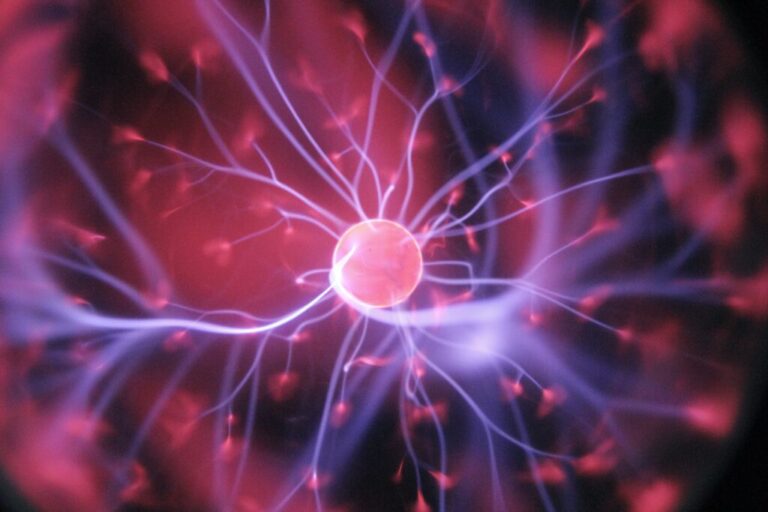Dopamine is a neurotransmitter with several important functions in the body, but for today’s purposes we’re going to talk about the pleasure-reward and motivation aspect of this chemical.
Dopamine exists naturally in the brain, and we like that! We like it so much, that when it is released into the brain we feel a sensation of pleasure, which can motivate us to repeat the same action that caused it in the first place — sometimes it’s just about enjoying the smell of fresh baking, other times it’s video-game successes giving us a hit, it even plays a role in sexual gratification.

The motivation part looks a little something like this: You do a task, whether it is something your wanted to do or not, and when it’s complete you feel a sense of satisfaction, this is fuelled by dopamine in your brain, and it feels good. So, the next time you do a task, you feel the same thing and your brain recognizes the good feeling, and logs this as a way to feel good. Task completion gets easier because you are motivated by the good feelings in your brain. This system is hijacked by “tasks” like watching a short video on your phone. The video doesn’t even have to be happy or cute (although, those can be more pleasurable!) you simply need to complete watching a short clip, and your brain says “task complete, have some dopamine”. This is how we can find ourselves scrolling through videos for an hour and wonder a) where the time went and b) why would we do such a thing?
Dopamine is a very addictive chemical. The more we feel it, the more we want it. The more we do tasks that bring it out.
This can lead to misuse quickly. As Oscar Wilde said, “Everything in moderation, including moderation.” When we let the dopamine hits guide our choices, we tend to make poorer choices. Sure, playing that video game, beating those enemies and making it to the next level, until 1am on a school/work night seemed like a fun idea at the time, but in the end it can impact our functioning the next day, from lack of sleep to depleted dopamine (which leads to lack of motivation). Over-indulging in anything, even good things like exercise or healthy eating, can lead to our detriment.
Balance is key here. Letting ourselves be drawn into activities that don’t serve our greater good, just for the sake of feeling good can be enticing at best, and addicting at worst. Looking at how our options will affect us in in the long-run rather than jumping for the immediate gratification takes practice, but the rewards are worth it. Self-discipline and moderation may seem like the party-poopers when it comes to dopamine hits, but the truth is, when you moderate your activities, you end up feeling better all around, rather than trying to figure out how to balance the huge highs and deep lows.
If you’re looking to get more of the natural dopamine hits in your life in a more moderate way, here are a few ways you can increase the dopamine production in your body:
1) Decrease stressors in your life — we can’t avoid stress in 2023, but we can certainly be choosey about what we let into our life that causes us stress. The more you can reduce stress, the better! Including meditation or yoga in your day or week can both help to lower stress and increase dopamine at the same time. It’s a two for one sort of ordeal.
2) Spend more time outside — studies have shown that spending time in sunlight can increase the number of dopamine receptors in the brain, as compared to those who spend less time in sunlight. It certainly can’t hurt to try (unless you forget your sunscreen)!
3) Maintain a healthy diet, avoid junk food, and exercise regularly — I group these together because if you’re doing one, you’re probably doing the other! Eating “from the rainbow” when it comes to fruits and vegetables, avoiding processed foods, and including movement in your daily routines have all been linked to higher dopamine responses, especially when you gamify the movement, like playing a game of ultimate frisbee with your mates.
4) Limiting the amount, or abstaining completely from alcohol or recreational drug use — this one seems like a no-brainer, but the truth is, alcohol lowers the dopamine response system and some recreational drugs can impede it altogether. The more you can avoid, the better you’ll feel, getting “high” on your naturally occurring dopamine hits.
5) Find fun wherever you are — kids are so easy to please. A quick game of eye-spy while you’re waiting in line, or a favoured story told while on a long car ride, a snooze, and back at it again for the next new and exciting thing! If only, as adults, we could be so easily pleased. For me, playing board games with friends makes the dopamine hit, often including much laughter in the the event, or when I’m on my own, crocheting and listening to a podcast puts me at ease and brings me pleasure. What are those things for you?? Finding a couple good ways to enjoy yourself with friends, or on your own, and doing them often will help you build up those pleasure receptors in your brain and offer more opportunities for you to experience joy on the daily!
6) Get the right amount of sleep — this will be different for everyone, but most people do not get their full 8 hours of sleep a night. Many of us dread the sound of the alarm in the morning, and try to get “just another 5 minutes” before having to slink into the shower, and face work. Cultivating a bedtime routine and getting to sleep on time, on average, can increase the brain’s ability to produce dopamine. There’s also other great benefits to getting enough sleep, like not feeling like you’re dragging yourself through the entire day, and instead being able to enjoy the little things in life.
Not everyone will respond to every activity in the same way. Our brains are made differently, especially if you have something like ADHD — which is known to be a cause for low levels of dopamine. Here are some signs you’re not getting enough dopamine and might want to seek out some medical advice:
• Depression, anxiety, and mood swings
• Low sex drive
• Lack of motivation
• Loss of pleasure in experiences and people once enjoyed
• Difficulty concentrating or focusing at school or work
• Sleep disturbances or insomnia
• Hand tremors, as well as restless leg syndrome
• Gastrointestinal issues, such as constipation
If these symptoms persist, don’t wait to seek a medical opinion, as there are early interventions for some of the diseases caused by low dopamine. It’s better to know now than wait and wish you’d done something sooner.
Looking for, and building into our routines, the sort of activities we can do in our lives to bring about a good feeling from dopamine can be tricky. Finding the balance between activities that grow us and activities that harm us is a little like spinning plates — at first you’ve got to watch them all to make sure you don’t drop any. But the more you practice, the better you’ll get. And soon, you’ll be feeling the dopamine hits without even realizing you’d done something to bring it on. If you’re looking for support around low dopamine, or want help to build good routines reach out and I’d love to work with you on this great journey of yours!
